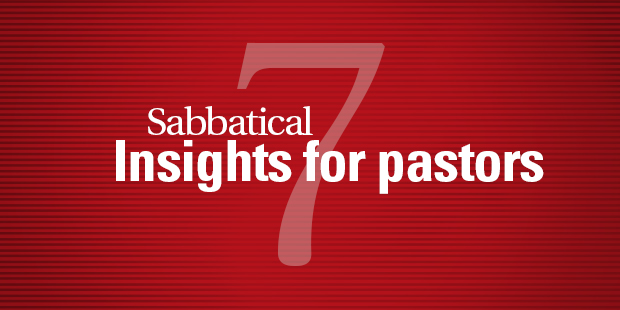
Overcome an Overloaded Life: Create Margin
We’re all busy in the same sorts of ways. Our lives are consumed with the crushing weight of family, work, and church activities. Our lives are bombarded with requests, demands, and desires. Individual situations may be quantitatively less busy than others, and some more so, but as a society we are living a shared experience of an overwhelmed life.
Where does it all stop? When will things slow down? How can we recapture time lost?
Technology has delivered time-saving devices that actually consume more time. Progress moves our lives faster and faster, yet we seem incapable of enjoying little if any benefit. We desire and often achieve more. We have bought into a full-life timeshare to only find ourselves bankrupt in emptiness.
Are you asking this question:
I don’t have enough time to do the things I need to do, let alone the things I want to do.
THE QUICK SUMMARY – Margin, by Richard A. Swenson
Margin is the space that once existed between ourselves and our limits. Today we use margin just to get by. This book is for anyone who yearns for relief from the pressure of overload. Reevaluate your priorities, determine the value of rest and simplicity in your life, and see where your identity really comes from. The benefits can be good health, financial stability, fulfilling relationships, and availability for God’s purpose.
A SIMPLE SOLUTION
Life in much of the world today is essentially devoid of time and space. The time and space that once existed in the lives of family and friends who regularly lingered after dinner, visited with the neighbors, sat on the front porch, went for long walks, planted flowers or a garden, and always had a full night’s sleep.
People are exhausted from trying to live life in a 24/7 world. People are stressed trying to keep the good things going and the bad things at bay. People are overloaded with things that (maybe) were once good but now are burdens.
We need more time. We need more space. We need more reserves. We need more buffer.
We need margin.
Margin is the space between our load and our limits. It is the amount allowed beyond that which is needed. It is something held in reserve for contingencies or unanticipated situations. Margin is the gap between rest and exhaustion, the space between breathing and suffocating.
To be healthy, we require margin in at least four areas: emotional energy, physical energy, time, and finances. Conditions of modern living, however, have drained these margins rather than sustaining them.
Restoring Margin in Emotional Energy
- Cultivate social supports – The existence of intact, functioning, healthy, nurturing systems of social support are as good a resource for replenishing depleted energy reserves as can be found.
- Reconcile relationships – True reconciliation is one of the most powerful of all human interactions.
- Serve one another – One of the best ways to heal your own pain is to focus instead on meeting the needs of others.
- Rest – Be with people and serve them. But be sure to get away occasionally. Escape. Relax. Sleep in. Rest restores.
Restoring Margin in Physical Energy
- Take personal responsibility – Until we accept personal responsibility for our own health, the road to the future will remain paved with aches.
- Change your habits – Changing habit disorders often requires changing lifestyles.
- Decrease intake of fat, sugars, and total calories – There are healthier foods that also taste good, we can change our bad habits, and we can’t afford not to.
- Exercise for the body, mind, and spirit – One hundred percent of people who exercise to the point of cardiorespiratory fitness will experience an increased sense of well-being.
Restoring Time Margin
- Expect the unexpected – To plan for the unexpected is not an invitation to sloppiness or mediocrity but instead a concession to reality.
- Learn to say “No” – Saying No is not just a good idea, it has now become a mathematical necessity.
- Get less done but do the right things – Busyness is not a synonym for kingdom work – it is only busyness.
- Prune the activity branches – Even though it is much harder to stop something than start it, periodically, get out the clippers and prune away.
Restoring Financial Margin
- Live within your harvest – Not only should you make do with what you have but accept what you have.
- Discipline desires and redefine needs – Clarify the distinction between needs and desires and be honest about it before God.
- Fast – The world does not stop nor the family fall apart when we unplug from the treadmill of consumerism for a period.
- Counter culture – Willingly and knowingly wrestle control from a culture wanting to tell us what we must buy and own.
Richard A. Swenson, Margin
A NEXT STEP
Review the above four areas of margin needed in your life, and choose the one that you personally most need at this time.
Block off a two-hour minimum time where you will not be disturbed. Turn off your mobile phone and ask not to be disturbed.
On a chart tablet, list the margin area you chose at the top, and then divide the chart tablet into four quadrants. In each quadrant, list one of the four actions that accompany the margin area above.
Taking at least 20 minutes for each, list actions or thoughts that come to mind in each of the four areas. List everything that comes to mind, even if it doesn’t seem practical at first.
When you have completed all four quadrants, review the tablet and connect any similar actions with a line. Now, force rank at least three actions in each of the quadrants.
List the top three from each quadrant on a new chart tablet entitled, “My Prescriptions for Restoring Margin.” For each, write out a brief description and date as to when you will begin taking this action.
Repeat the above steps once per week until you have covered all four areas of margin in your life. Calendar time one month from the start your work in each of the four areas to revisit your progress, making changes as needed.
Bonus: Walk your leadership team through this exercise. The greatest gift you may give your staff is the ability to create margin.
Excerpt taken from SUMS Remix 87-1, released February 2018.
This is part of a weekly series posting excerpts from one of the most innovative content sources in the church world: SUMS Remix book excerpts for church leaders.
SUMS Remix takes a practical problem in the church and looks at it with three solutions; each solution is taken from a different book. Additionally, a practical action step is included with each solution.
As a church leader you get to scan relevant books based on practical tools and solutions to real ministry problems, not just by the cover of the book. Each post will have the edition number which shows the year and what number it is in the overall sequence. (SUMS Remix provides 26 issues per year, delivered every other week to your inbox).
> > Subscribe to SUMS Remix <<

Tags: Busy, Margin, Overloaded Life, Richard Swenson, SUMS Remix
















